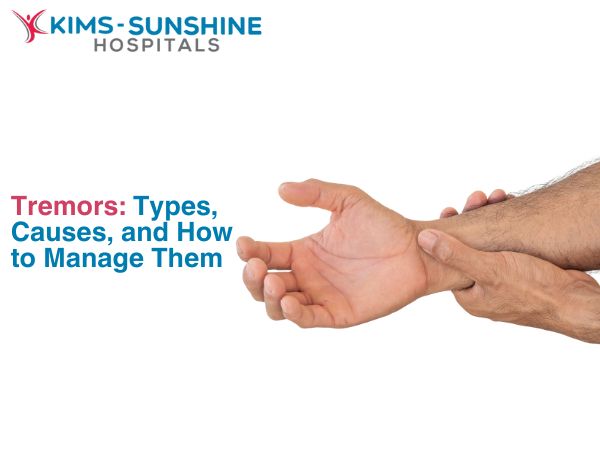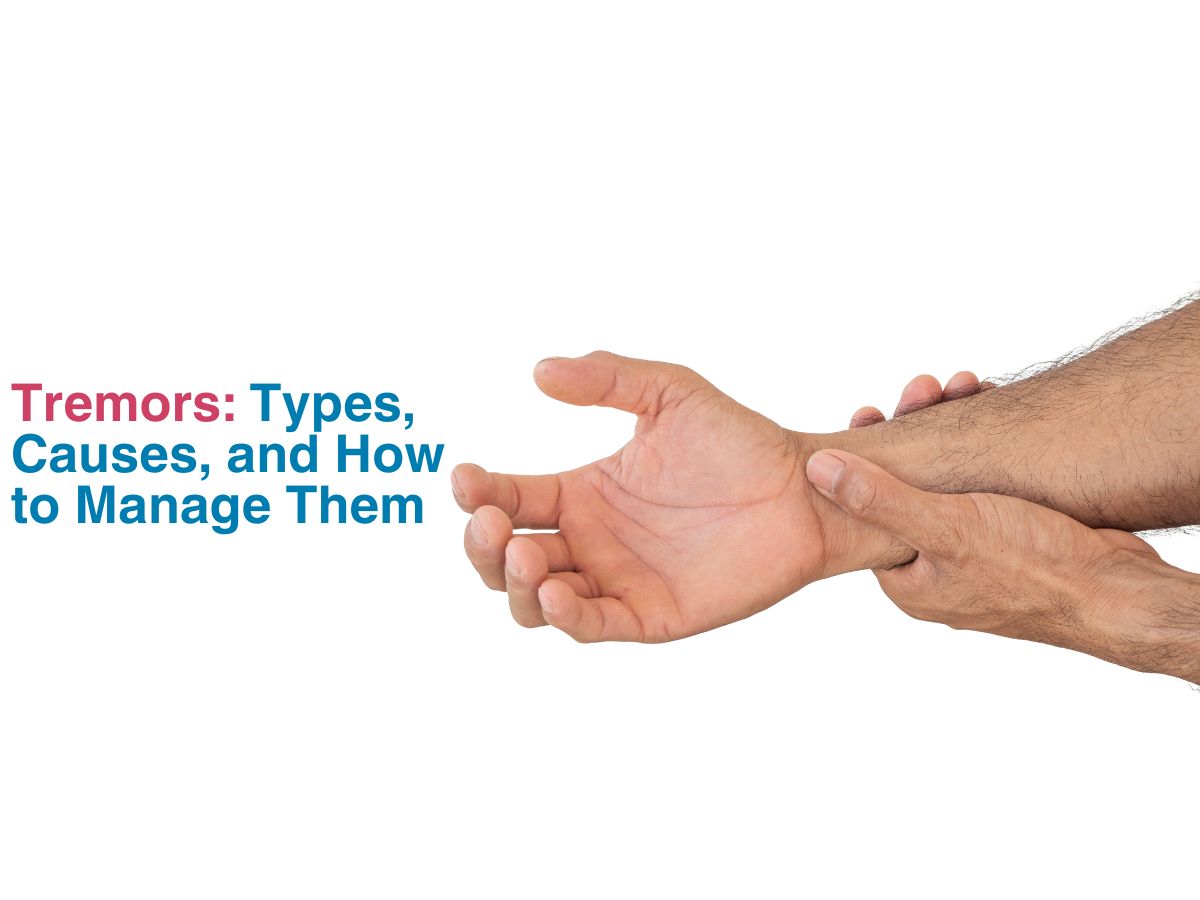
Tremors: Types, Causes, and How to Manage Them
 A tremor is a medical term used to describe any involuntary movement of a body part- mostly the hands and the feet. Tremors are not caused randomly but happen due to some medical condition that you may not be aware of. Tremors are normally classified into two types in the broadest sense- ones that occur when you move versus ones that occur during rest- called action and resting tremors respectively. These may occur due to situations where you are anxious or it may only be caused due to a neurodegenerative condition like Parkinson’s disease(PD). Action tremors are further subclassified into – postural (when you try to hold a particular position), isometric (like when you do a push-up) and kinetic (when you write or need to coordinate and move your limbs) tremors respectively. Resting tremors are caused when you are completely at rest.
A tremor is a medical term used to describe any involuntary movement of a body part- mostly the hands and the feet. Tremors are not caused randomly but happen due to some medical condition that you may not be aware of. Tremors are normally classified into two types in the broadest sense- ones that occur when you move versus ones that occur during rest- called action and resting tremors respectively. These may occur due to situations where you are anxious or it may only be caused due to a neurodegenerative condition like Parkinson’s disease(PD). Action tremors are further subclassified into – postural (when you try to hold a particular position), isometric (like when you do a push-up) and kinetic (when you write or need to coordinate and move your limbs) tremors respectively. Resting tremors are caused when you are completely at rest.
What Causes Hand Tremors And How To Treat Them?
Hand tremors can be caused due to neurological conditions like PD or multiple sclerosis (MS), but they can also be caused when you have low blood sugar, have too much caffeine, get anxious, have dystonia, are overly exhausted or are going through withdrawal of some sort (like from drugs or alcohol). This is when you are not able to hold onto something normally and spill stuff or cut yourself while shaving. Other parts of the body can get affected too in such cases.
Difference Between Essential Tremor And Parkinson’s Tremor
An essential tremor is one which comes and goes mostly when you move your hands or legs. They don’t normally happen when you are at rest. You may think you are more clumsy than usual, but this trait seems to run in families. For some people however, they may happen at rest and you may show such symptoms even if you don’t have any neurological condition.
If you have Parkinson’s disease or Parkinsonism, then you will definitely have resting tremors which seem to get worse over a period of time. If they respond well to dopamine-containing medications, then you can be sure that it is Parkinson’s or parkinsonism indeed. In PD however, tremors occur more on one side of the body than the other.
Neurological Conditions That Cause Tremors
Some of the most well known neurological conditions that can cause tremors include PD, MS, if you have had a stroke, have Wilson’s disease, any cerebellar issues, or have an essential tremor.
How To Diagnose And Test For Tremors?
You will be recommended a bunch of tests, so the doctor can understand whether you have an essential tremor or if it is caused due to some neurodegenerative disorder. This is done by checking the following aspects-
- If the tremor occurs at rest or when you move a body part
- They will check muscle tone, reflexes, speech patterns and how your balance and coordination in general are. This is a neurological examination.
- If you have noticeable tremors, then they will check how intense they are, how often they occur and where they happen
- They will ask to do imaging or give you simple tests like drawing or holding an object or check your gait.
- They will also check if you are on certain drugs like antidepressants, which can cause tremors as a side effect.
- They will obviously take a detailed medical history too.






